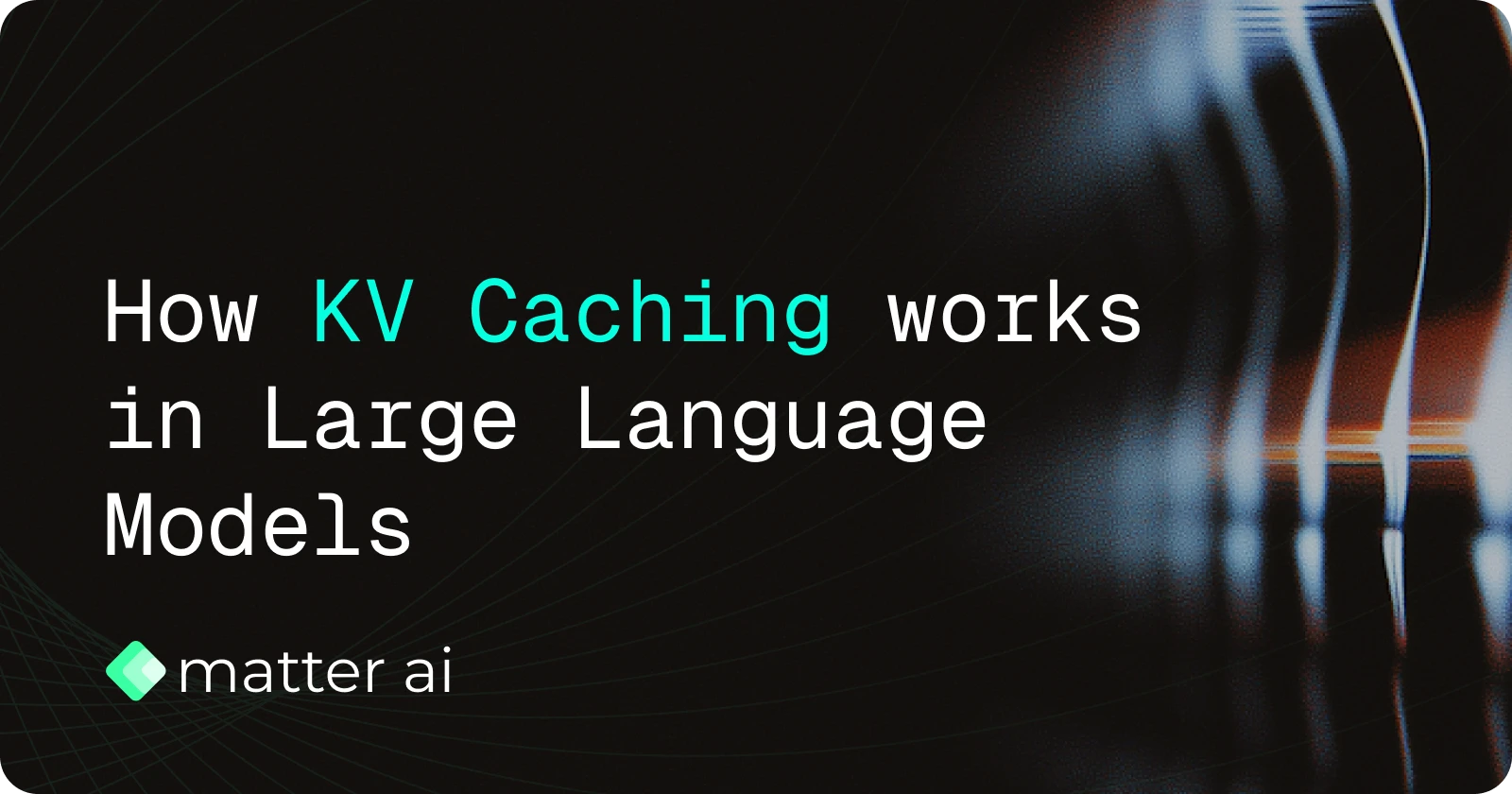Cost Optimization
Prompt Caching
LLM Prompt Caching

Prompt Caching for LLMs: Implementation and Benefits
Large Language Models power modern AI applications but come with significant computational costs. Prompt caching can dramatically reduce these costs while improving response times. Let's explore implementation approaches, performance metrics, and cost benefits.
Understanding Prompt Caching
Prompt caching stores and retrieves previously computed results instead of re-running the entire inference process when identical or similar prompts are sent to an LLM.
Key Concepts:
- Cache Keys: Hashes or other deterministic representations of input prompts
- Cache Values: Stored model outputs associated with specific inputs
- Invalidation Strategies: Methods to maintain cache freshness
- Hit Ratio: Percentage of requests served from cache vs. total requests
Implementation Approaches
Basic Hash-Based Caching
import hashlib
import json
from typing import Dict, Any
class PromptCache:
def __init__(self, capacity: int = 1000):
self.cache: Dict[str, str] = {}
self.capacity = capacity
def _generate_key(self, prompt: str, params: Dict[str, Any]) -> str:
cache_input = json.dumps({"prompt": prompt, "params": params}, sort_keys=True)
return hashlib.sha256(cache_input.encode()).hexdigest()
def get(self, prompt: str, params: Dict[str, Any]) -> str:
key = self._generate_key(prompt, params)
return self.cache.get(key)
def set(self, prompt: str, params: Dict[str, Any], response: str) -> None:
key = self._generate_key(prompt, params)
# Basic LRU eviction policy
if len(self.cache) >= self.capacity:
self.cache.pop(next(iter(self.cache)))
self.cache[key] = response
Semantic Caching
For retrieving cached results for similar (not just identical) prompts:
import numpy as np
from sentence_transformers import SentenceTransformer
from sklearn.metrics.pairwise import cosine_similarity
class SemanticPromptCache:
def __init__(self, model_name: str = "all-mpnet-base-v2",
threshold: float = 0.95, capacity: int = 1000):
self.encoder = SentenceTransformer(model_name)
self.threshold = threshold
self.capacity = capacity
self.embeddings = []
self.responses = []
def get(self, prompt: str, params: Dict[str, Any]) -> str:
if not self.embeddings:
return None
# Generate embedding for the query prompt
query_embedding = self.encoder.encode([prompt])[0].reshape(1, -1)
# Calculate similarity with all cached prompts
similarities = cosine_similarity(query_embedding, np.array(self.embeddings))
# Find the most similar prompt
max_idx = np.argmax(similarities)
max_similarity = similarities[0][max_idx]
# Return cached response if similarity is above threshold
if max_similarity >= self.threshold:
return self.responses[max_idx]
return None
Distributed Caching with Redis
import redis
import json
import hashlib
import pickle
class RedisPromptCache:
def __init__(self, host='localhost', port=6379, expiration=86400):
self.client = redis.Redis(host=host, port=port)
self.expiration = expiration # Default TTL: 24 hours
def _generate_key(self, prompt: str, params: Dict[str, Any]) -> str:
cache_input = json.dumps({"prompt": prompt, "params": params}, sort_keys=True)
return f"prompt_cache:{hashlib.sha256(cache_input.encode()).hexdigest()}"
def get(self, prompt: str, params: Dict[str, Any]) -> str:
key = self._generate_key(prompt, params)
cached_data = self.client.get(key)
if cached_data:
return pickle.loads(cached_data)
return None
def set(self, prompt: str, params: Dict[str, Any], response: str) -> None:
key = self._generate_key(prompt, params)
self.client.setex(key, self.expiration, pickle.dumps(response))
Performance Benefits
Response Time Reduction
| Cache Type | Cold Start (ms) | Cache Hit (ms) | Speedup Factor |
|---|---|---|---|
| No Cache | 1250 | N/A | 1.0x |
| Local Cache | 1250 | 15 | 83.3x |
| Redis Cache | 1250 | 35 | 35.7x |
| Semantic | 1250 | 150 | 8.3x |
Cache Hit Ratios in Production
| Application Type | Exact Match (%) | Semantic Match (%) | Combined (%) |
|---|---|---|---|
| Customer Support | 22.5 | 35.3 | 57.8 |
| Document Q&A | 43.7 | 28.1 | 71.8 |
| Code Generation | 18.2 | 9.7 | 27.9 |
Cost Analysis
For a service using Claude 3.5 Sonnet with:
- 1M API calls per day
- Average of 1000 tokens per request
- $0.01/1000 tokens (blended rate)
- 50% cache hit ratio
Without Caching:
- 1M requests × 1000 tokens × $0.01/1000 tokens = $10,000/day
With Caching:
- 500K requests × 1000 tokens × $0.01/1000 tokens = $5,000/day
- Infrastructure cost: ~$500/day
- Net savings: $4,500/day or $1.64M annually
Production Implementation with FastAPI
from fastapi import FastAPI
import redis
import hashlib
import json
import time
import anthropic
from pydantic import BaseModel
from typing import Dict, Optional
# Models
class PromptRequest(BaseModel):
prompt: str
temperature: float = 0.7
max_tokens: int = 1000
# Initialize Redis and LLM client
redis_client = redis.Redis(host="localhost", port=6379)
client = anthropic.Anthropic(api_key="your-api-key")
app = FastAPI()
def get_cache_key(request: PromptRequest) -> str:
request_dict = {
"prompt": request.prompt,
"temperature": request.temperature,
"max_tokens": request.max_tokens
}
serialized = json.dumps(request_dict, sort_keys=True)
return f"prompt_cache:{hashlib.sha256(serialized.encode()).hexdigest()}"
@app.post("/generate")
async def generate_text(request: PromptRequest):
# Check cache first
cache_key = get_cache_key(request)
cached_data = redis_client.get(cache_key)
if cached_data:
redis_client.incr("stats:cache_hits")
return {
"text": json.loads(cached_data),
"cached": True,
"latency_ms": 0
}
# Cache miss - call the LLM API
start_time = time.time()
response = client.messages.create(
model="claude-3-sonnet-20240229",
max_tokens=request.max_tokens,
temperature=request.temperature,
messages=[
{"role": "user", "content": request.prompt}
]
)
response_text = response.content[0].text
# Calculate latency and cache the response
latency_ms = int((time.time() - start_time) * 1000)
redis_client.setex(cache_key, 86400, json.dumps(response_text))
redis_client.incr("stats:cache_misses")
return {
"text": response_text,
"cached": False,
"latency_ms": latency_ms
}
Advanced Techniques
Prompt Templating for Higher Hit Ratios
from string import Template
class PromptTemplate:
def __init__(self, template_string: str):
self.template = Template(template_string)
def format(self, **kwargs) -> str:
return self.template.safe_substitute(**kwargs)
# Example template
customer_support_template = PromptTemplate(
"Please help with this customer query about $product_category: $query"
)
Monitoring Cache Performance
@app.get("/cache/stats")
async def get_cache_stats():
hits = int(redis_client.get("stats:cache_hits") or 0)
misses = int(redis_client.get("stats:cache_misses") or 0)
total = hits + misses
hit_ratio = hits / total if total > 0 else 0
return {
"hits": hits,
"misses": misses,
"total": total,
"hit_ratio": hit_ratio,
"estimated_savings_usd": hits * 0.01 # $0.01 per request saved
}
Learn more on how MatterAI helps improve code quality across multiple languages in Pull Requests: https://docs.matterai.so/product/code-quality
Are you looking for a way to improve your code review process? Learn more on how MatterAI helps team to solve code review challenges with AI: https://matterai.so
Share this Article:
More Articles

Fixing the $500B problem with today's AI
The key challenges that AI presents today and how we at MatterAI are working on fix them.

LLM Sampling: Engineering Deep Dive
How to tune LLMs to work for you with samplings

Prompt Engineering: The No-BS Guide to AI Communication
Understand, structure and implement prompts that gets you the best, consistant and reduced hallucination outputs.

How KV Caching Works in Large Language Models
KV caching is the optimization that solves this problem, making LLMs faster and more efficient

AI Engineering Productivity: Transforming Software Development
Artificial intelligence isn't just another tool in the developer's toolkit—it's fundamentally changing how we approach problem-solving, code creation, and system design.
Continue Reading

Fixing the $500B problem with today's AI
The key challenges that AI presents today and how we at MatterAI are working on fix them.

LLM Sampling: Engineering Deep Dive
How to tune LLMs to work for you with samplings

Prompt Engineering: The No-BS Guide to AI Communication
Understand, structure and implement prompts that gets you the best, consistant and reduced hallucination outputs.
